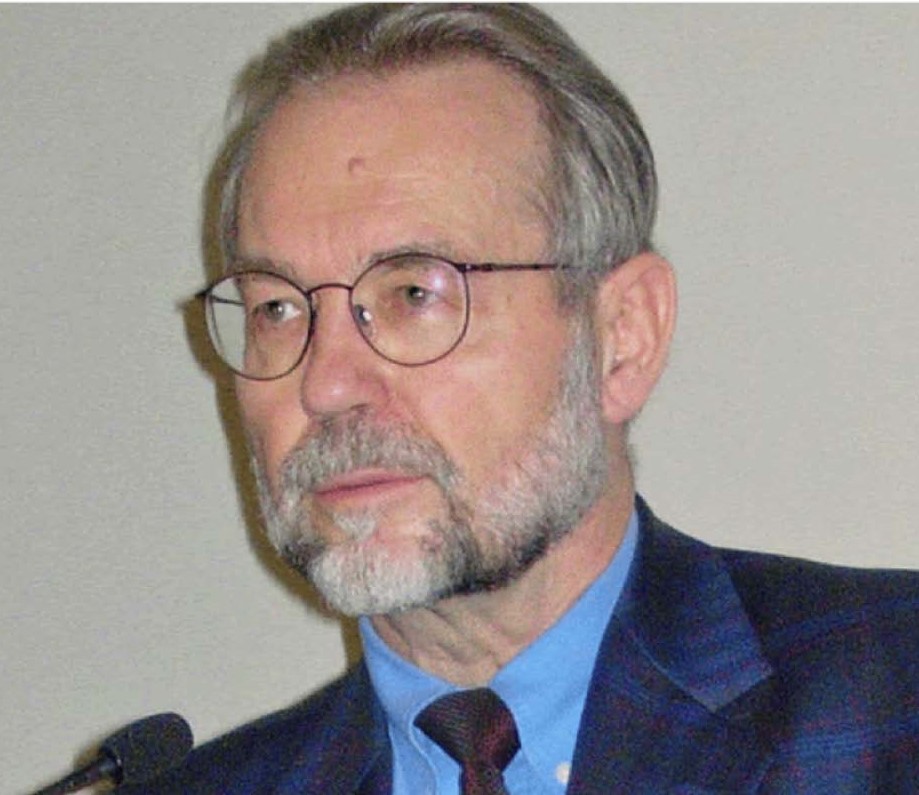Roland Posner (1942-2020)

Roland Posner, President of the IASS from 1994 to 2004, died on 26 May 2020.
Born on 30 June 1942, Posner studied philosophy, comparative literature, linguistics and communication theory at the universities of Bonn, Munich and Berlin. In 1972 he graduated summa cum laude in the subjects of General Linguistics, German language and Philosophy at the Technical University of Berlin, with a thesis on the Theory of Annotating: A Baseline Study on Semantics and Pragmatics. In 1973, he habilitated in the fields of linguistics, literary studies and philosophy of language at the TU Berlin. From 1974 he was an associate professor and from 1975 professor for “Germanic and General Linguistics”, also at the TU Berlin. From 1975 to 1980 he was director of the Institute of Linguistics there, and rrom 1980 he was Director of the “Research Center for Semiotics” . From 1975 he was also director of the “semiotic Working Group Berlin” (SAB). In 1975, he was also the founding chairman of the German Society for Semiotics (DGS).
Posner held visiting professorships at the University of Hamburg (1973) and at the Université de Montréal (1977). He was also a lecturer at linguistic and semiotic summer institutes in Salzburg (1977), Tunis (1979), Toronto (1982), Lisbon (1983), Mysore (1984/85), São Paulo (1985) and Lund (1992). A member of the 1986/1987 Netherlands Institute for Advanced Study in Wassenaar, he was appointed Associate Fellow for life there. In 2010, he became Professor Emeritus at TU Berlin.
His main research interests were in philosophy of science, linguistic pragmatics, cultural semiotics, poetics and aesthetics, general sign research. As founding chairman, Roland Posner initiated the Deutsche Gesellschaft für Semiotik (= DGS) in 1975. He partially co-organised its congresses, appointed new blood in the advisors body and helped establish and connect the DGS internationally. Together with Martin Krampen and Dagmar Schmauks and in cooperation with the Austrian Association for Semiotic Studies, the Österreichische Gesellschaft für Semiotik (ÖGS), he founded the society journal in 1979: the Zeitschrift für Semiotik (ZfS). In 1982, he initiated a stipend or publication grant for young semioticians, the Förderpreis Semiotik of the DGS, which has since provided a platform for the semiotic talent to make innovative research public. Frequently, this award has led to young semioticians becoming involved in the DGS and sometimes also actively participating in the advisors’ body. With his sustainable commitment in and for the DGS, Roland Posner gave impetus to semiotics in Germany.
In addition to his administrative work and his support for scholarship, Posner’s own publications constituted major landmarks. Among these are his study on “Strukturalismus in der Gedichtinterpretation” (Posner 1969), his introduction to the German translation of Foundations of the Theory of Signs by Charles W. Morris (1972), his Theorie des Kommentierens (1972), his proposal of classification of dialogue varieties (1972), the focused overview over the “Linguistische Poetik” (1973) or his deliberations on “Theorie der rationalen Kommunikation” (1974), which he developed in dialogue with Habermas and Albert. Among his later landmark publications are Zeichenprozesse – Semiotische Forschung in den Einzelwissenschaften (1977), “Balance of complexity and hierarchy of precision” (1981), Rational Discourse and Poetic Communication (1982) Nach Chomskysche Linguistik (1985), “Zur Systematik der Beschreibung verbaler und nonverbaler Kommunikation: Semiotik als Propädeutik der Medienanalyse” (1986), Classics of Semiotics (1987), Warnungen an die ferne Zukunft. Atommüll als Kommunikationsproblem (1990), “Der Mensch als Zeichen” (1994), “Semiotische Umweltverschmutzung: Vorüberlegungen zu einer Ökologie der Zeichen” (1998), “Fighting Semiotic Pollution in Europe: Dutch and German-Speaking Semiotic Communities in the 20th Century” (1998), “The Reagan Effect: self-presentation in humans and computers” (2000), “Basic tasks of cultural semiotics” (2003), “Post-modernism, post-structuralism, post-semiotics? Sign theory at the fin de Siècle” (2001) and the monumental Semiotik / Semiotics. Ein Handbuch zu den zeichentheoretischen Grundlagen von Natur und Kultur / A Handbook on the Sign-Theoretic Foundations of Nature and Culture (with Robering and Sebeok 1997-2004) as well as the publication of more than 100 much-cited essays in prestigious journals and edited collections.
Posner had an aptitude for founding new series (with important partners such as Meggle and Sebeok: these include the Grundlagen der Kommunikation (de Gruyter), Approaches to Semiotics (Mouton), the Probleme der Semiotik (Stauffenberg) and Zeichen / Körper / Kultur, with Arno Spitz.
A committed generalist and polymath, Posner repeatedly protested against “the pigeonholing of expert scientists” [“das Schubladendenken der Fachwissenschaftler”]. Questions and methods of literary, music and art sciences seemed to have so much in common, that he was only able to explain their scientific self-isolation sociologically. His transdisciplinary commitment envisioned a “general culture theory on a semiotic basis” [“allgemeinen Kulturtheorie auf semiotischer Basis”], which ought to visualise to the “partially withered science logicians” [“teilweise vertrockneten Wissenschaftslogikern”], and demonstrate “how important communication is both as item and method of the sciences” [“wie wichtig Kommunikation ist als Gegenstand und Methode der Wissenschaften”]. In linguistics, he saw a possible model for other disciplines in the Humanities. Posner strived to be able to “formulate literary (science) theory as culture (science) theory intersubjectively reconstructible” [“Literatur(wissenschafts)theorie als Kultur(wissenschafts)theorie intersubjektiv rekonstruierbar zu formulieren”]. He also yearned for “polyglot dialogue”, while making suggestions for medicinal therapy, for urban development, traffic planning and for semiotic pollution.
A truly visionary thinker with a relentless drive to augment, reform and promote intellectual life, Posner’s contribution to semiotics and recent transdisciplinary thought is difficult to overestimate. The magnitude of his loss corresponds to the breathtaking reach of his exploration of mental and social life.

Leave a Reply
You must be logged in to post a comment.